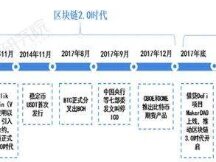How is the blockchain industry reacting to the application of the privacy policy?
On November 1, 2021, the “Privacy Policy” of the People's Republic of China (hereinafter referred to as the “Privacy Policy”) came into effect. It is similar to the EU General Data Protection Regulation (GDPR) 'Privacy Policy', both of which contain rules for foreign decisions. Therefore, it is necessary to familiarize yourself with the new privacy rules in the blockchain industry.
1. Labor Code: "Consent to notice" policy
The principles for retaining personal information set out in the Privacy Policy are generally clear, legitimate and objective. will guarantee. The GDPR also specifically sets out the principles of the processing of personal data, including legitimacy, fairness and transparency, objective restrictions, reduced and precise processing of data, time constraints, confidential and confidential information.
According to the above principle, in the "Privacy Policy", personal information may only be processed under certain circumstances, such as when approved by an individual, create personal records in a special way in accordance with the terms contract or law, and respond to emergencies, stipulated that the rules allow the public interest is also clear. For example, you need to make sure that the person has all the knowledge and consent for choice and clarity. This is similar to the GDPR. The GDPR also establishes rules governing the environment around "data authorization", requiring free and clear authorization for certain functions of the data source.
2. The right to privacy
The “Right to Privacy” allows human rights to withdraw, restrict and deny access to information. The rules of GDPR are almost the same, but also include the rules for easy-to-carry data. Automatic transmission to other user-generated data by a person in a designed and machine-readable manner
At the same time, the privacy policy defines personal information as a variety of information relating to an identified or self-identified person electronically or otherwise. Important information such as financial statements and personal information. Anonymous information is not personal information. The GDPR is almost identical to these rules, for example, only personal data is personally identifiable or personally identifiable, but there are differences.
In essence, the GDPR borrows from this protection, but there is more forgiveness than it actually is.
3. Extraterritorial jurisdiction
The GDPR states that the rules of the GDPR apply as long as institutions are established in the European Economic Area or provide goods or services or monitor their behavior to individuals in the European Economic Area. The privacy policy also extends to foreign decisions to extend the privacy policy.
In a sense, in addition to the personal information processing activities of Chinese organizations that exist in China, they also conditionally use the personal information processing activities performed by the foreign code location. From a regulatory perspective, personal data does work that occurs outside of China for the purpose of providing goods or services to people at home or for inspection and evaluation. The behavior of family members is subject to the law on the protection of privacy. As for the cryptocurrency market itself, if a foreign manufacturing company joins the blockchain and cryptocurrency industry, companies that meet the following criteria fall into disrepair.
(1) Upon completion (including collection, storage, use, disclosure, etc.) of a family member's personal information occurring abroad; and
(2) Its purpose is to provide products or services to household members or to monitor and evaluate the behavior of family members.
4. The result of the violation
Breaking the law of self-defense first requires administrative responsibility. If a foreign company violates the "Privacy Policy" and the serious situation, fined less than 50 million yuan or less than 5% of last year, the industry is involved in the business license or revocation of the business license, guardian and other responsible persons over 100,000 yuan and over 1 million yuan will be liable to the following penalties:
The second is civil liability. If a foreign company files personal information about a member of the household in violation of the law and violates the law and personal interests, the victim has the right to claim compensation from citizens, and the payment is determined according to the rules. . If this is unsuccessful, the People's Court will determine the amount of compensation based on the actual situation if it is impossible to determine the levy by an individual or the amount of income from a personal data processor.
For the blockchain industry, this may include the collection, storage, use and disclosure of personal information by consumers or users, whether for business purposes or in accordance with requirements such as KYC or AML. From a cryptocurrency oversight and network security perspective in China, privacy breaches should be viewed as vigilant and businesses should be cautious.

Scan QR code with WeChat































